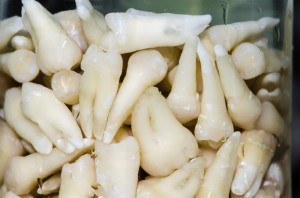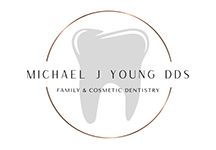 Are you scheduled for a tooth extraction? Most tooth extractions are performed easily, quickly, and without any problems. Once in a great while, however, there may be a minor complication. The most common problem after having a tooth extracted is dry socket. Only about two to three percent of people ever develop dry socket and it’s most common in smokers, but it is worth knowing about. In today’s blog we answer the question: what is dry socket?
Are you scheduled for a tooth extraction? Most tooth extractions are performed easily, quickly, and without any problems. Once in a great while, however, there may be a minor complication. The most common problem after having a tooth extracted is dry socket. Only about two to three percent of people ever develop dry socket and it’s most common in smokers, but it is worth knowing about. In today’s blog we answer the question: what is dry socket?
Your Teeth
Your teeth are seated in a hole in your jaw called the socket. They are held in place with periodontal ligaments and your gums. When the dentist pulls a tooth a blood clot forms in the socket. This clot serves to protect the nerves and bone from bacteria, food particles, and other irritants. It also provides a foundation for new bone and tissue to grow. Therefore, the blood clot is essential to the healing process.
Dry Socket
If the blood clot is dislodge for any reason, or fails to form, it is referred to as dry socket. A dry socket is no longer protected against bacteria, food, fluids, air, or any of a number of irritants, and can become infected if not treated as soon as possible. If you develop dry socket you’re likely to experience pain a few days after the tooth extraction. Some people are at higher risk for dry socket than others, such as:
- Smokers
- People with a history of dry socket
- People with poor oral hygiene
- People taking certain medications such as birth control pills
Treatment
Treatment for dry pocket is usually easy. The socket needs to be flushed of any debris that may cause pain or infection then is commonly packed with medicated dressings to keep it clean, safe from irritants, and to encourage healing. Aspirin or ibuprofen is often given for pain.
ABOUT YOUR LAFAYETTE GENERAL DENTIST:
Michael J. Young, DDS, and his skilled team of dental care professionals happily serve patients and their families, living in Breaux Bridge, Broussard, Scott, Youngsville, and surrounding communities. To learn more, contact us today at our Lafayette dentist’s office at 337-237-6453.
